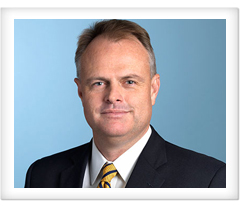| |
 Alerts & Advisories Alerts & Advisories
 Industry Reports & Newsletters Industry Reports & Newsletters
 Published Articles Published Articles
 Social Media & Blogs Social Media & Blogs
 Brochures Brochures

|
 |
TCPA & Consumer Calling
Monthly TCPA Digest
March 2017
By Joshua Briones, Russell Fox, Alex Hecht, Radhika Bhat, E. Crystal Lopez, Rachel Sanford Nemeth, Grace Rosales, Esteban Morales, and Sam Rothbloom
We are pleased to present the latest edition of our Monthly TCPA Digest, providing insights and news related to the Telephone Consumer Protection Act (TCPA). This month’s issue features updates on Congress’s approach to tech policy, the appointment of Ajit Pai as Chairman of the FCC, and various other Commission releases and action.
If you have suggestions for content you would like us to feature in this newsletter, or if you have any questions about the topics presented in this issue, please feel free to reach out to an attorney on Mintz Levin’s TCPA and Consumer Calling Practice team. You can click here to subscribe.

By Russell Fox and Radhika Bhat
- The FCC adopted a Notice of Proposed Rulemaking (“NPRM”) and Notice of Inquiry (“NOI”) that proposes to make it permissible for voice service providers to block certain illegal robocalls, noting in particular that robocalls where the Caller ID is faked – i.e. “spoofed” robocalls – can lure consumers into scams or lead to identity theft. Specifically, the NPRM proposes to adopt rules that would allow providers to block robocalls when (i) the subscriber to a particular number requests that calls originating from that number be blocked; or (ii) the calls are from invalid numbers, valid numbers that are not allocated to a voice service provider, or valid numbers that are allocated but not assigned to a subscriber. The FCC further tentatively concluded that an “illegal robocall” subject to provider-initiated blocking is one that violates the requirements of the TCPA or the Telemarketing Sales Rule, as well as any call made for the purpose of defrauding a consumer as prohibited under a variety of federal and state laws and regulations, including the Truth in Caller ID Act. The NPRM also seeks comment on how to address spoofing from internationally-originated numbers. The related NOI seeks comment on (i) objective standards that would indicate to a reasonably high degree of certainty that a call is illegal; (ii) whether to create a safe harbor for providers from their call completion obligations when they rely on objective criteria to prevent illegal robocalls from reaching consumers; and (iii) ways that callers who make legitimate calls can guard against being blocked and ways to ensure that legitimate callers whose calls are blocked by mistake can prevent further blocking.
- The Consumer and Governmental Affairs Bureau issued a Public Notice seeking comment on Craig Cunningham and Craig Moskowitz’s Petition for Rulemaking and Declaratory Ruling. The petition argues that prior Commission orders finding that persons who knowingly release their phone numbers have given their consent to be called at that number, absent instructions to the contrary, conflict with the plain language of the TCPA by allowing parties to make calls with implied consent, rather than with prior express consent as the statute mandates. The petition asks that the Commission initiate a rulemaking adopting requirements that (i) consent must be expressly provided (ideally the Commission would also require all express consent to be given in written form); and (ii) express consent must be specifically about receiving autodialed and artificial voice calls. In addition, the petition requests that the Commission issue a declaratory ruling to remove uncertainty regarding the meaning of “prior express consent” that has resulted from prior orders. Comments were due March 10, 2017 and reply comments were due March 27, 2017.
- Paul Ambruster filed and then withdrew a Petition for Rulemaking and Declaratory Ruling asking that the Commission clarify that a common carrier must act on its customer’s request to revoke consent to receive the carrier’s autodialed or pre-recorded/artificial voice calls, despite a common carrier’s ability under the TCPA to make such calls without the prior express consent of its customer. Ambruster stated that his petition was prompted by T-Mobile, which had taken the position that since a carrier need not obtain consent, consent is never needed, and therefore it matters not if a subscriber revokes it. The Consumer and Governmental Affairs Bureau initially sought comment on the petition, but later terminated its consideration of the petition in response to Ambruster’s and T-Mobile’s joint motion to withdraw it.
- The Republican National Committee (“RNC”) was one of the many parties that filed comments on Craig Moskowitz and Craig Cunningham’s Petition for Rulemaking and Declaratory Ruling. Among other things, the RNC argued that the petition’s proposals would unduly burden core political speech in violation of the First Amendment.
Return to top

Congress is gearing up to legislate on a host of different issues related to technology and telecommunications. The House got off to an early start in January when it approved seven tech and telecom bills. One of those bills, the Anti-Spoofing Act of 2017 (H.R. 423), would close legal loopholes that bad actors exploit to “spoof” (i.e., to present false caller ID information) in order to misrepresent themselves in phone calls and texts. Sponsored by Representative Grace Meng (D-NY), the bill sailed through the House by a vote of 398-5. A day later, the Senate Commerce Committee unanimously approved a companion measure, titled the Spoofing Prevention Act of 2017 (S.134). Introduced by Senator Bill Nelson (D-FL), the Ranking Member of the Senate Commerce Committee, this bill is a strong candidate for passage on the Senate floor.
More recently, several other tech bills have been introduced, including the Help Americans Never Get Unwanted Phone Calls (HANGUP) Act. Authored by Senator Ed Markey (D-MA), the legislation would remove a provision in the Bipartisan Budget Act of 2015 that exempts government contractors and federal debt collectors from the Telephone Consumer Protection Act (TCPA). This bill, which Senator Markey introduced earlier this month with Senator Mike Lee (R-UT), is a new version of the Act that he introduced last Congress. The two bills are nearly identical, with one exception: The new version reverses the Federal Communications Commission’s “Broadnet” decision, which found that the TCPA “does not apply to calls made by or on behalf of the federal government in the conduct of official government business, except when a call made by a contractor does not comply with the government’s instructions.” The HANGUP Act was referred to the Senate Commerce Committee where it awaits consideration.
As we have argued in previous alerts, the bills updating the TCPA that will have the best chance of becoming law are those that strengthen the law’s protections for consumers and reduce its ambiguity for businesses. During this Congress, Democrats have already started to advocate for the first of these two causes. Last month, Senator Markey led a letter, signed by eight other Senate Democrats, to FCC Chairman Ajit Pai calling for the Commission to take greater action against robocalls. Republicans have also advocated for tougher measures to clamp down on robocalls, which they have proposed to be included in a broader package that also clarifies the TCPA’s requirements for businesses.
This month, the Senate Commerce Committee held an FCC oversight hearing, which featured some discussion of robocalls. Committee Chairman Thune (R-SD) reaffirmed his interest in ensuring that the TCPA does not punish legitimate telemarketing activity, while Chairman Pai noted his work on rules to block robocalls from spoofed phone numbers.
At the hearing, two issues that could affect the future of the TCPA received a lot of attention: commissioner vacancies and process reform. Ranking Member Nelson and Senator Amy Klobuchar (D-MN) urged President Trump to re-nominate former FCC Commissioner Jessica Rosenworcel to the Commission. Senator Brian Schatz (D-HI) called on the Senate to return to the practice of pairing nominees of different parties together to confirm them simultaneously. He suggested that the Senate hold one vote to confirm both Chairman Pai (whom President Trump nominated to a full term this month) and former Commissioner Rosenworcel. Chairman Thune also asked Commissioner Mignon Clyburn to commit to serving out her full term; she said she has no plans to leave.
On process reform, Chairman Pai noted his commitment to release the text of items before the Commission considers them at its open meetings. He also voiced support for consolidating the FCC’s reporting obligations to Congress and reforming the Sunshine Act to allow for more collaborative and efficient decision-making among commissioners. Commissioner Michael O’Rielly, a vocal supporter of process reform, called for establishing a Bureau of Economics within the FCC, requiring rigorous cost-benefit analyses of all rulemakings, and instituting automatic sunsets for all Commission rules. He also said the FCC should limit the use of delegated authority, under which bureaus, rather than commissioners, can issue decisions. In the past, he has said that commissioners should be able to block bureaus from exercising delegated authority on any item on which two or more commissioners want a panel vote.
The House Energy and Commerce Committee had been slated to hold an FCC oversight hearing the same day as the Senate Commerce Committee did. However, it postponed the hearing due to Committee work on the Affordable Care Act. We expect the hearing to be rescheduled for this spring.
Return to top

President Trump has appointed Commissioner Ajit Pai to serve as chairman of the FCC. The appointment is significant and will mark a shift in the Commission’s approach to the TCPA.
The “TCPA has become the poster child for lawsuit abuse,” notes Chairman Pai.[1] “Because plaintiffs may enforce the statute via class action[,] suits under the Act present lucrative opportunities for plaintiffs’ firms.”[2] Chief Justice Roberts has gone as far as to describe the statute as the “strangest” he has seen.[3] Adding to confusion and abuse, the Commission has issued a variety of inconsistent and overreaching orders and rulings throughout the last decade that have expanded the statute’s reach and created fertile ground for enterprising plaintiffs’ attorneys.
One of the Commission’s most notable missteps is its July 2015 TCPA Omnibus Declaratory Ruling and Order. There the Commission significantly increased exposure to TCPA suits by broadening the oft-contested definition of an automatic telephone dialing system. Among other issues, the Commission also addressed calls to reassigned numbers, impractically proclaiming that consent under the TCPA must be obtained from current subscribers to telephone numbers. Chairman Pai responded with a 12-page Dissenting Statement noting that rather than incentivizing “plaintiffs to go after the illegal telemarketers, the over-the-phone scam artists, and the foreign fraudsters[,] trial lawyers have found legitimate, domestic businesses a much more profitable target.”[4]
The Court of Appeals for the D.C. Circuit, which has received briefing and held arguments, now holds the fate of the Ruling in its hands. If the Court sides against the Commission and directs it to reconsider the Ruling, Chairman Pai’s dissent provides more than a glimpse into the TCPA belt-tightening that the plaintiff’s bar can expect. For example, we can expect to see an automatic telephone dialing system definition that closely tracks the statute’s language and focuses on the present (rather than hypothetical) capacity of dialing equipment. Likewise, Chairman Pai’s dissent indicates that moving forward the Commission would endorse a more business-friendly and pragmatic “expected-recipient approach” to calls accidentally made to reassigned numbers.
Regardless of how the Court of Appeals for the D.C. Circuit rules, we can expect the Commission to correct the trajectory of the statute through pending and new petitions. By way of example, a petition that has been pending before the Commission since November 2015 asks for confirmation that faxes initiated, and received, in digital form do not fall within the purview of the TCPA’s fax provisions – though a pro-defendant ruling may have been unlikely under former Chairman Tom Wheeler, confirmation that these types of transmissions do not violate the TCPA is likely with Chairman Pai at the helm.
Chairman Pai recognizes that the “TCPA has strayed far from its original purpose. And the FCC has the power to fix that.”[5] With the appointment of Chairman Pai, who formerly served as Associate General Counsel at Verizon Communications, the Commission now has the power and opportunity to right the ship.

Endnotes
1 Dissenting Statement of Commissioner Ajit Pai, In re Rules & Regulations Implementing the Tel. Consumer Prot. Act of 1991, 30 FCC Rcd 7961 (2015).
2 Reliable Money Order, Inc. v. McKnight Sales Co., 704 F.3d 489, 491 (2013).
3 Mims v. Arrow Fin. Servs., LLC, 132 S. Ct. 740 (2012) (No. 10-1195), Transcript Oral Argument.
4 Dissenting Statement of Commissioner Ajit Pai, In re Rules & Regulations Implementing the Tel. Consumer Prot. Act of 1991, 30 FCC Rcd 7961 (2015).
5 Id.
Return to top

In an economy where timely and effective communication with both current and prospective customers is vital to the success of nearly every business, modern technology, such as autodialers, recorded and artificial voice messages, text messaging, and e-mail provide companies the ability to reach large numbers of people with increasingly smaller up-front costs. But, companies cannot afford to overlook the hidden costs of using these mass communication methods if the many regulations that govern their use are not carefully followed.
Companies have been hit with class action lawsuits under the Telephone Consumer Protection Act (TCPA) for tens or even hundreds of millions of dollars. Mintz Levin's multidisciplinary team work tirelessly to help our clients understand the ever-changing legal landscape and to develop workable and successful solutions. TCPA rules can apply to certain non-sales calls, such as a recorded call to employees about a new work schedule or a text to customers about a new billing system. We advise on how to set up calling campaigns that meet state and federal requirements as well as how the Federal Communications Commission and the Federal Trade Commission apply their rules on calling, faxing, and texting. Given the uncertainties surrounding the TCPA as a result of the FCC's extensive and confusing rulings, we work with clients across many industries, health care, retail, communications and financial services, on matters relating to the following issues:
Compliance: Our TCPA team routinely advises companies on compliance with federal and state sales and marketing requirements. We also know what type of consumer consent is needed for each type of call and how specific consents must be worded. We know when and how to apply a do-not-call list and when and how an opt-out provision must be afforded.
Consumer class action defense: We've been called upon to handle TCPA class actions across all industries and in federal courts across the nation. Our seasoned litigators know the serial plaintiffs and counsel well and are unfazed by their schemes. Fortunately for our clients, our team has succeeded in winning at the motion stage or earlier in the vast majority of TCPA matters we have defended. That is what truly sets us apart. And if a case must go to trial, we have the experience and strength to follow it to the end.
Insurance coverage disputes: We know the arguments insurers use to deny coverage in TCPA suits because we've defended against them. More important, we have a long track record of convincing carriers to fund the defense of these actions and, in some cases, to pay significant portions of settlements. Our goal is to help secure insurance protection and to see to it that carriers make good on their coverage obligations when a claim arises.
|
|

Related Practices

Related Industries

Joshua Briones, Member

Russell Fox, Member

Craig Gilley, Member

Alexander Hecht, ML Strategies - Vice President of Government Relations

Radhika Bhat, Associate

E. Crystal Lopez, Associate

Rachel Sanford Nemeth,
ML Strategies - Director of Government Relations

Grace Rosales, Senior Analyst and Business Relations Specialist

Esteban Morales, Associate

Sam Rothbloom, Project Analyst

ML Strategies
|
|